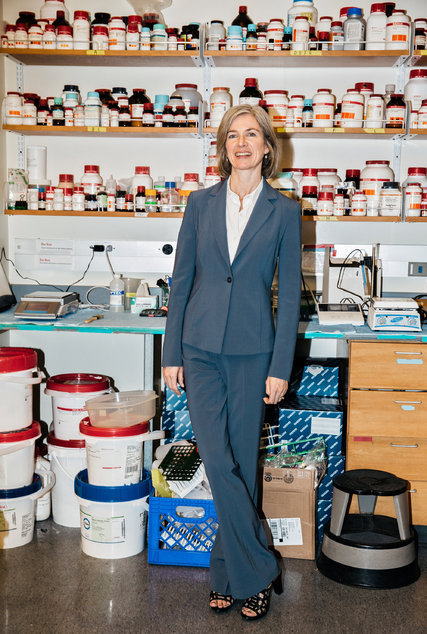Some people have a gene that makes them more efficient sleepers, needing only 4-6 hours per night.
Adam Rifkin stashed this in Sleep!
Stashed in: Facts, Science!, Awesome, Sleep, CRISPR, AMA, DNA
AMA with Ying Hui Fu, the scientist who discovered the gene:
https://reddit.com/r/science/comments/3kj669/science_ama_series_im_yinghui_fu_i_study_the/
The most effective way to improve your sleep is to fix your wake-up time in the morning.
Fu has subsequently sequenced the genomes of several other families who fit the criteria of short-sleepers. They’re only just beginning to understand the gene mutations that lead to this talent, but in principle, she says, it might one day be possible to enable short sleeping in others.
Until then, are there any shortcuts to a more efficient night’s sleep for the rest of us? Neil Stanley, an independent sleep consultant, says yes: “The most effective way to improve your sleep is to fix your wake-up time in the morning.”
Stanley says that when your body gets used to the time it needs to wake up, it can use the time it has to sleep as efficiently as possible. “Studies show that your body prepares to wake up one and a half hours prior to actually waking up. Your body craves regularity, so if you chop and change your sleep pattern, your body hasn’t got a clue when it should prepare to wake up or not.”
You could also do yourself a favour by ignoring society’s views on sleep, he says. “There’s this social view that short sleeping is a good thing and should be encouraged – we’re always hauling out the example of Margaret Thatcher and top CEOs who don’t need much sleep. In fact, the amount of sleep you need is genetically determined as much as your height or shoe size. Some people need very little sleep, others need 11 or 12 hours to feel their best.”
Stanley says that a lot of people with sleep issues actually don’t have any problem sleeping, instead they have an expectation that they need to sleep for a certain amount of time. “If we could all figure out what kind of sleeper we are, and live our life accordingly, that would make a huge difference to our quality of life,” he says.
Fu and her colleagues discovered a tiny mutation in a gene called DEC2 that was present in those who were short-sleepers, but not in members of the family who had normal length sleep, nor in 250 unrelated volunteers.
When the team bred mice to express this same mutation, the rodents also slept less but performed just as well as regular mice when given physical and cognitive tasks.
Getting too little sleep normally has a significant impact on health, quality of life and life expectancy. It can cause depression, weight gain and put you at greater risk of stroke and diabetes. “Sleep is so important, if you sleep well you can avoid many diseases, even dementia,” says Fu. “If you deprive someone of just two hours sleep a day, their cognitive functions become significantly impaired almost immediately.”
But why sleep is so important is still a bit of a mystery. The general consensus is that the brain needs sleep to do some housekeeping and general maintenance, since it doesn’t get much downtime during the day. While we sleep, the brain can repair cellular damage, remove toxins that accumulate during the day, boost flagging energy supplies and lay down memories.
DAMN THESE PEOPLE
The scientists that isolated the gene are hopeful that we can learn enough from these people to understand sleep better, and that will benefit us all.
Next 5-10 years should see huge leaps in sleep research.
So one day you may be thanking these people.
I consider myself lucky to be in the 5-7 hr range!
My takeaway from the AMA is that your genetics largely influence it.
One question is: One day, when we can edit genes, would you want to change your genetic predisposition to that number of hours of sleep?
YES!
I hear ya, Janill.
If only I didn't have to sleep, life would be super fun!!
Perhaps sleep serves an important break that we need as humans.











1:18 AM Sep 13 2015